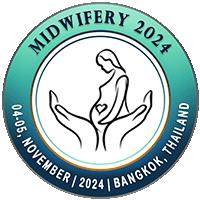
Nadine Mand
Department of Pediatrics, Philipps-University Marburg, GermanyTitle: SARS-CoV-2 in newborns: Data from the COVID-19 Related Obstetric and Neonatal Outcome Study (CRONOS)
Abstract
Background: Studies on SARS-CoV-2 infections in pregnancy and possible consequences for the unborn child come to different conclusions. The risk of intrauterine transmission, prematurity and intrauterine fetal death is controversial1, as is a possible influence of the time of infection during pregnancy2. The aim of this analysis is to specify positive RT-PCR findings in newborns of the CRONOS registry.
Methods: CRONOS is a prospective German registry including pregnant women with SARS-CoV-2 infection. Maternal SARS-CoV-2 infection was assumed if the RT-PCR or antigen test was positive. Neonatal SARS-CoV-2 infection was assumed with a positive RT-PCR in the newborn. The following analyses includes data collected between April 2020 and May 2022 in more than 120 participating maternity hospitals on almost 7000 women.
Preliminary results: A total of 73 newborns had a positive SARS-CoV-2 RT-PCR. 6/73 (8.1%) were stillbirths, in 4 of those intrauterine SARS-CoV-2 transmission was confirmed or possible according to WHO categorization.3 8/67 (11.9%) livebirths only tested positive on their first day of life thus indicating probable transient colonization. There was inconclusive data on further 6/67 (9.0%) newborns. In 14 of the remaining 53 newborns (26.4%) intrauterine transmission was categorized as possible, in 9 (17%) postnatal transmission was categorized as possible or confirmed.
Discussion: A positive SARS-CoV-2 RT-PCR in newborns is not synonymous to neonatal COVID-19. There is evidence on intrauterine transmission of SARS-CoV-2 in newborns even if this is a rare event.
Biography
Nadine Mand is a neonatologist
and pediatric intensive care specialist at the Department of Pediatrics,
Philipps-University in Marburg, Germany

